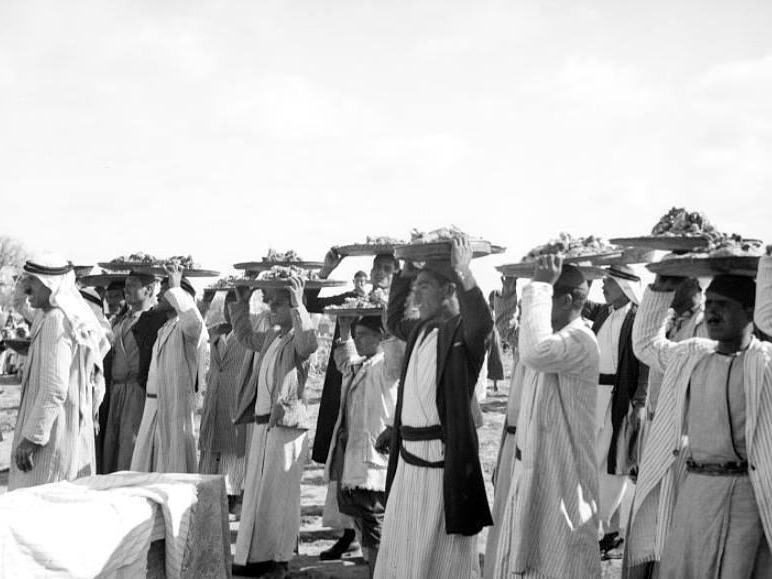When Omar Khatib returned to college at age 28, joining a club wasn’t on his agenda.
“I just wanted to get in, do my thing and go,” he said.
That all changed when Khatib, who is Jordanian-Palestinian, learned about Pasadena City College’s newly formed chapter of Students for Justice in Palestine (SJP).
“There was no way I could say no to this,” he said at a club meeting in September.
The club’s leadership—made up of President Anja Kelley, Vice President Diego Santoyo, Secretary Saira Saif, ICC Representative Britton Smith, and Treasurer Maria Deguzman—said during meetings in September and October that the group’s focus will be on education about Palestinian resistance and the complex historical and political issues underlying the current violence.
“It’s going to be on education and putting some things on the map, versus the Anti-War Club which is more like on-the-ground protests and all that exciting stuff,” Santoyo said at the Sep. 24 meeting. “With MENA as well, they’re more about embracing and spreading Middle East culture. But this club is specifically for Palestine.”
Pro-Palestine campus activism has seen a groundswell in the past year following Israel’s war on Gaza, including at PCC.
In March, the Courier revealed that the PCC Foundation holds investments in several companies targeted for boycott by pro-Palestine activists, including ExxonMobil and RTX Corp. The following month, PCC’s Anti-War Club staged a 300-person demonstration calling for the PCC Foundation to divest from boycott targets. Soon after, the Associated Students at Pasadena City College passed a resolution with similar goals. Then in May, student demonstrators again demanded that the PCC Foundation divest from assets associated with the oppression of Palestinians.
(PCC spokesperson Alex Boekelheide told LAist that the data published by the Courier is outdated, and the college’s current investments are in diversified mutual funds, not individual stocks. The Courier stands by its reporting.)
While exact figures are difficult to determine in a war zone, official estimates place Gaza’s death toll at over 41,000. At press time, the number of displaced Lebanese was estimated to be over 1,000,000.
The club plans to host monthly teach-ins in collaboration with Faculty and Staff for Justice in Palestine. Topics will include the distinction between anti-Zionism and antisemitism, the meaning of being anti-Zionist, and the historical event known as the Nakba, according to Santoyo.
The Nakba, meaning “catastrophe” in Arabic, was a critical moment in Palestinian history, marking the start of the Israeli-Palestinian conflict that continues to this day. The legacy of that displacement is a key part of what the club hopes to address.
Khatib, whose family was displaced from Majdal (now Ashkelon) during the Nakba, noted the personal significance of the club.
“For me, this club is important because it gives us a place to talk about these things,” Khatib said, “and maybe do something, even if it’s just educating others.”

For many attendees, the club has become not only an educational space but also a place for emotional support, offering a refuge to process the intensity of the ongoing conflict.
Professor Hector Agredano, a co-advisor of the club, emphasized the importance of creating such a space.
“It’s a place to process and remember that you’re not alone,” he said.
This feeling of solidarity resonated with PCC student Ky Gale, who attended the club’s October 1 meeting.
“I’ve just been looking for more communities in person to talk about it,” Gale said. “Of course you can find a lot of discourse online, and a lot of resources online, which is great, but it helps so much more when you’re able to be one-on-one with people and be in community and to really feel held.”
Beyond emotional support, the club also seeks to deepen students’ understanding of the geopolitical context.
Agredano, a geographer, provided a historical overview of the one-state versus two-state solution, explaining how the Oslo Accords and continued Israeli settlement expansion have eroded hopes for a two-state solution.
“We are left with a segregated society,” Agredano said of Israel/Palestine, noting that Israel’s expansion of settlements in the West Bank and Gaza and the Israeli blockade of Gaza have made the two-state solution increasingly unviable.
For Khatib, the club is also a way to connect with his heritage and remember the stories of his family.
“I’m Palestinian but I was born and raised in the U.S.,” Khatib said, “Both my grandparents passed away when I was fairly young and I didn’t get to ask them questions that now today, at this age, I would have loved to have asked them. This all also expands my knowledge.”
Others, like Gale, expressed the need for spaces like this in an America that can often feel disconnected from global events.
“I think America has this underlying current of denialism and it just feels so absurd,” Gale said. “So I’m really grateful that we have SJP here.”
As discussions unfolded at the meetings, students frequently voiced their frustration with the helplessness they feel in the face of such a large-scale conflict.
“You lay down at night thinking, ‘What the hell can I do?’” Khatib said.
Agredano responded to these feelings, acknowledging the weight of the situation but encouraging collective action.
“I feel like part of what has been debilitating is feeling like we can’t do anything because it’s just so big,” Agredano said, “But I think collectively we can all pitch in.”
[Sign up for the Courier Newsletter]
- One PCC student’s visa restored; second case still unresolved - April 28, 2025
- Anulación de visas afectan a estudiantes de PCC en medio de una represión nacional - April 15, 2025
- As federal funds disappear, local arts groups vow to push on - April 23, 2025
